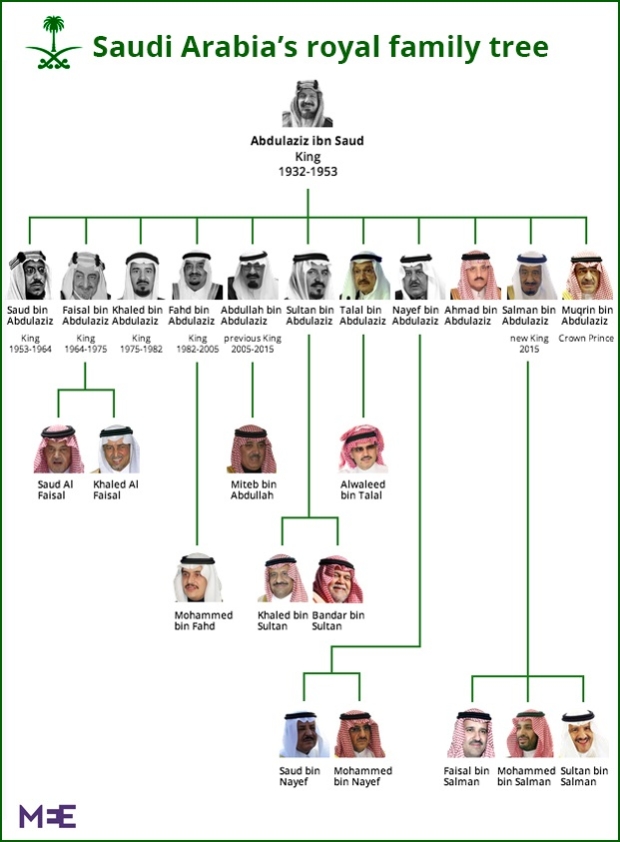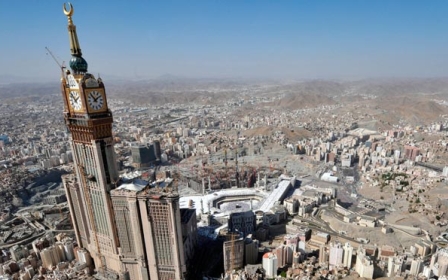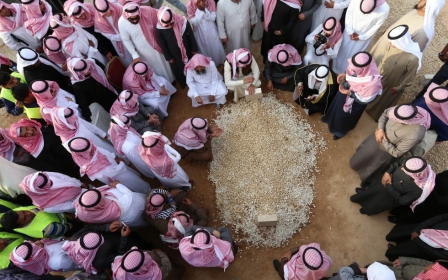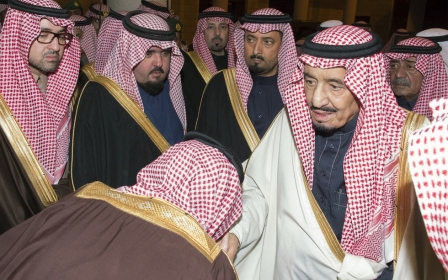New Saudi king orders cabinet reshuffle
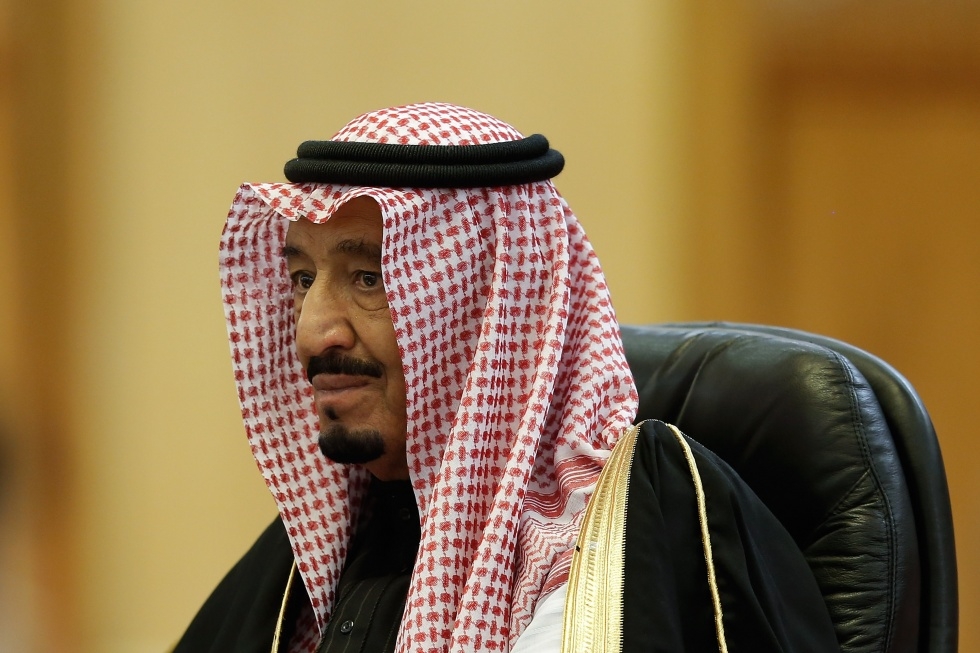
Saudi Arabia's new King Salman announced a cabinet reshuffle on Thursday evening, less than a week after the death of King Abdullah.
The move was a significant break with the past that saw several key players stripped of their seats, and various Salman loyalists promoted up the ranks.
Powerful Interior Minister Prince Mohammed bin Nayef became third in line to the throne, while Deputy Crown Prince Muqrin, 69, was elevated to King-in-Waiting.
Muqrin would reign as the last son of the kingdom's founder, Abdul Aziz bin Saud, leaving bin Nayef as the first of the "second generation," or grandsons of Abdul Aziz.
"There is a lot of centralisation of power that happened yesterday, perhaps more so than people even realised he [King Salman] would have been capable of," David Weinberg, a senior fellow at the Foundation for Defense of Democracies, told MEE.
"He is putting a lot of power into the hands of his son Mohammed and his nephew Mohammed Bin Nayef and also his son Abdul Aziz at the Oil ministry."
In the royal decree, Salman also moved to dismiss Prince Bandar Bin Sultan from his post as the head of the National Security Council.
"Custodian of the Two Holy Mosques King Salman bin Abdul Aziz al-Saud issued a royal order today, relieving Prince Khalid bin Bandar bin Abdul Aziz al-Saud, Chief of General Intelligence, of his post," the official Saudi Press Agency said.
Bandar was a long-time ambassador to the US, who later served and headed up Saudi's Syria policy before reportedly falling out of favour. He was removed from his post as deputy defence minister last year, only to be named the national spy chief shortly thereafter.
Two of the late king's sons - the governor of Mecca, Prince Mishaal bin Abdullah, and Prince Turki, who governed the capital Riyadh - were likewise dismissed.
However, veteran Oil Minister Ali al-Naimi, Finance Minister Ibrahim Alassaf, Foreign Minister Prince Saud al-Faisal and Religious Affairs Minister Saleh bin Abdul-Aziz Al ash-Sheikh were all kept on, according to the decree read out on state television in an address that lasted around half an hour.
"The Saudi reshuffle is very interesting, in part because of the eclipse of several of the sons of the late King Abdullah and the seemingly final end to the career in government of Prince Bandar bin Sultan, but also because of the introduction of several young new faces into key positions," Kristian Coates Ulrichsen, a research Fellow at Rice University’s Baker Institute for Public Policy told Middle East Eye.
"Among these, the appointment of Adel al-Toraifi as information minister at the age of 35 surely stands out. The new government is therefore an intriguing mix of familiar older faces and emerging youthful talent."
Other changes include the merging of the Education Ministry and Higher Education Ministry, as well as the replacement of Justice Minister Mohammed al-Issa. Mansour bin Mutaib, formerly minister of municipal and rural affairs, has been promoted to minister of state.
The former head of the ultra-conservative kingdom's notorious religious police, Sheikh Abdul Latif al-Sheikh, was likewise replaced by Abdulrahman al-Sanad, with controversial cleric Saad al-Shethri, known for his hardlined views against Christians, Jews and Shiites, coming in as a personal advisor to the kind.
"The reshuffle of senior religious officials seems to be a reflection of Salman's austere, conservative world view. This will not go down well with domestic and Western critics," Marks told AFP.
The changes confirmed speculation that Abdullah's death "would see a reversal in his immediate family's fortunes," Jon Marks, a Middle East expert at London-based think-tank Chatham House told AFP.
"We have a situation of change in a highly personalised hierarchy, but not - at least not immediately - of significant policy change."
But other analysts said that certain shifts could be expected, with Weinberg warning of possible crackdowns in Saudi's restive Eastern Province which houses a large Shiite population.
"The very enthusiastic embrace of the new king of his nephew Mohammed bin Nayef is indicative of the fact that he is re-investing in some of Saudi Arabia’s failed strategies," he said.
"Mohammed bin Nayef and his father together basically orchestrated the kingdom's very repressive crackdown in the Eastern Province and treating dissent with oppression. This has also been the strategy for dealing with moderate non-violent human rights activists throughout the kingdom."
Prince Nayef, is also well known for his heavy hand with militant groups like al-Qaeda; even before he became interior minister, he was in charge of a security crackdown on the group following a wave of deadly attacks in the Gulf state between 2003 and 2007.
London-based analyst Abdelwahab Badrakhan said Nayef's background implies that as king he would "prioritise security," a fact that "comforts foreign partners, especially the United States."
The appointment helps to solidify control by the new king's Sudairi branch of the royal family, named after Hissa bint Ahmad al-Sudairi, the mother of Salman and his late brother, Nayef.
Their influence had waned under King Abdullah.
No women were appointed to cabinet in a marked change from his predecessor who appointed the first female Saudi minister, Norah al-Faiz, in 2009.
In terms of foreign policy, it has been suggested by analysts that Saudi might at least ease its support for Egyptian President Abdel Fattah al-Sisi, but no official announcement has come as yet.
“Salman has played the role of loyal implementer when it came to relations with Egypt. He sat through Sisi’s inauguration, even kissing him at the event. The last post on Salman’s Twitter account before Abdullah’s death was a picture of Salman sitting with Sisi,” Weinberg said.
“It is possible that we may see a slight change in Saudi policy [toward Egypt] as Abdullah was very personally animated by the Egypt issue in the last year, but I have not seen clear signs from Salman that [a shift] might be in the works.”
Ulrichsen agreed: "Saudi policy is becoming a little less black and white and, as such, more open to dialogue with other groups both within Egypt and regionally. How this will play out with the Egyptian government is anyone's guess, but any tapering off of Saudi [and Emirati] aid to Egypt may force President Sisi to adopt a less confrontational approach."
Long-time regional rival Iran has also tried to test the new waters in Riyadh.
An Iranian official said Friday during a visit to Beirut that his country was keen to improve relations with its Middle East neighbours, especially Saudi Arabia.
"Iran's long-term policy is essentially based on establishing the best of brotherly relations with countries in the region, especially Saudi Arabia," Boroujerdi told reporters.
"We believe that the more that countries in the region consolidate and strengthen their relations, the more we can establish security and stability."
However, most analysts dismissed the prospect of a full rapprochement at least for now, with Riyadh and Tehran still firmly opposed on issues including the protracted civil war in Syria.
Massive public spending
In addition to the reshuffle, Salman announced a wide sweeping round of government spending worth an estimated $30bn, according to al-Arabiya.
As part of the spending spree Salman announced that all state employees would receive two months bonus salary, plus two months bonus pension for all retired state employees.
In addition, he ordered two months of bonus payments for students who receive state grants and for social security beneficiaries. A limited prisoner amnesty was also unveiled, although it remains unclear who, if anyone, will be released.
"Dear people: You deserve more and whatever I do will not be able to give you what you deserve," the king said later on his official Twitter account.
He asked his citizens to "not forget me in your prayers".
Upon his half-brother's passing last Friday, Salman vowed to stay the course and tried to present himself as a steady hand.
“We will, with God’s support, maintain the straight path that this country has advanced on since its establishment by the late King Abdulaziz,” Salman said in a speech broadcast on state TV.
New MEE newsletter: Jerusalem Dispatch
Sign up to get the latest insights and analysis on Israel-Palestine, alongside Turkey Unpacked and other MEE newsletters
Middle East Eye delivers independent and unrivalled coverage and analysis of the Middle East, North Africa and beyond. To learn more about republishing this content and the associated fees, please fill out this form. More about MEE can be found here.


